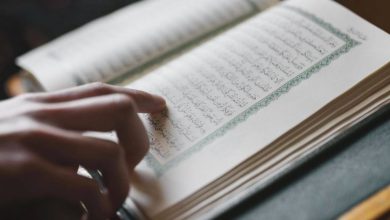Why Eid al-Adha is significant for many Muslim youth in Uganda
Eid al-Adha, is one of the few occasions which holds significance especially among young Muslims in Uganda. This year it will fall on Sunday June 16.
Unlike Eid-al-Fitr which marks the end of fasting, this Eid is for sacrificing animals and sharing meat with the needy.
For the youth in Uganda, this Eid is also for communal gathering, cultural expression, and social responsibility.
Food is also always in plenty on this Eid and many young Muslims prepare traditional Ugandan dishes such as matoke, pilau, and chapati which they share among family and friends.
On Eid, many young people shall participate in communal prayers and read the Qur’an.
Muhammed Matovu, 26, a journalist, says Prophet Muhammed implored the faithful to fast on the day before Eid known as the Day of Arafah.
“Allah forgives your sins and brings you closer to Him,” says Matovu.
He says Eid al-Adha is a time for strengthening family bonds and community ties.
Usually on Eid day, Muslims in Uganda wake up early to perform the special Eid prayer at the mosque. Here, they meet friends and family, exchange greetings, and share in the collective joy of the occasion.
Yet the most important thing about this Eid is the ritual sacrifice of an animal, usually a goat, sheep, or cow.
Matovu says this practice commemorates the willingness of Prophet Ibrahim to sacrifice his son as an act of obedience to God.
“We learn the values of sacrifice, charity, and gratitude. The meat from the sacrificed animal is distributed among family, friends, and the less fortunate, reinforcing the spirit of giving and community support,” he says.
Besides sacrificing animals, on this Eid, Muslims are encouraged to participate in various charitable activities.
Indeed, many young people join or organize groups to distribute food, clothes, and other necessities to the underprivileged. Some participate in fundraising events to support local orphanages, schools, and healthcare facilities.
These acts of kindness not only help those in need but also instill a sense of responsibility and empathy in the youth.
Beyond the religious observances, in Kampala, young people go out and have fun. Some go to cinemas, beaches or musical shows.
However Muslim clerics preach against this saying that some of the activities in those places contradict the teachings of Islam.
For some young people, they use this Eid as a time for reflection and personal growth.
Many take this opportunity to set new personal and spiritual goals, seeking ways to improve themselves and their community. The day encourages them to reflect on their lives, their faith, and their contributions to society.
By and large, for the Muslim youth in Uganda, Eid al-Adha is a multifaceted celebration that combines spiritual devotion, cultural expression, and social responsibility.
It is a time for them to reconnect with their faith, celebrate their heritage, and contribute positively to their community.


